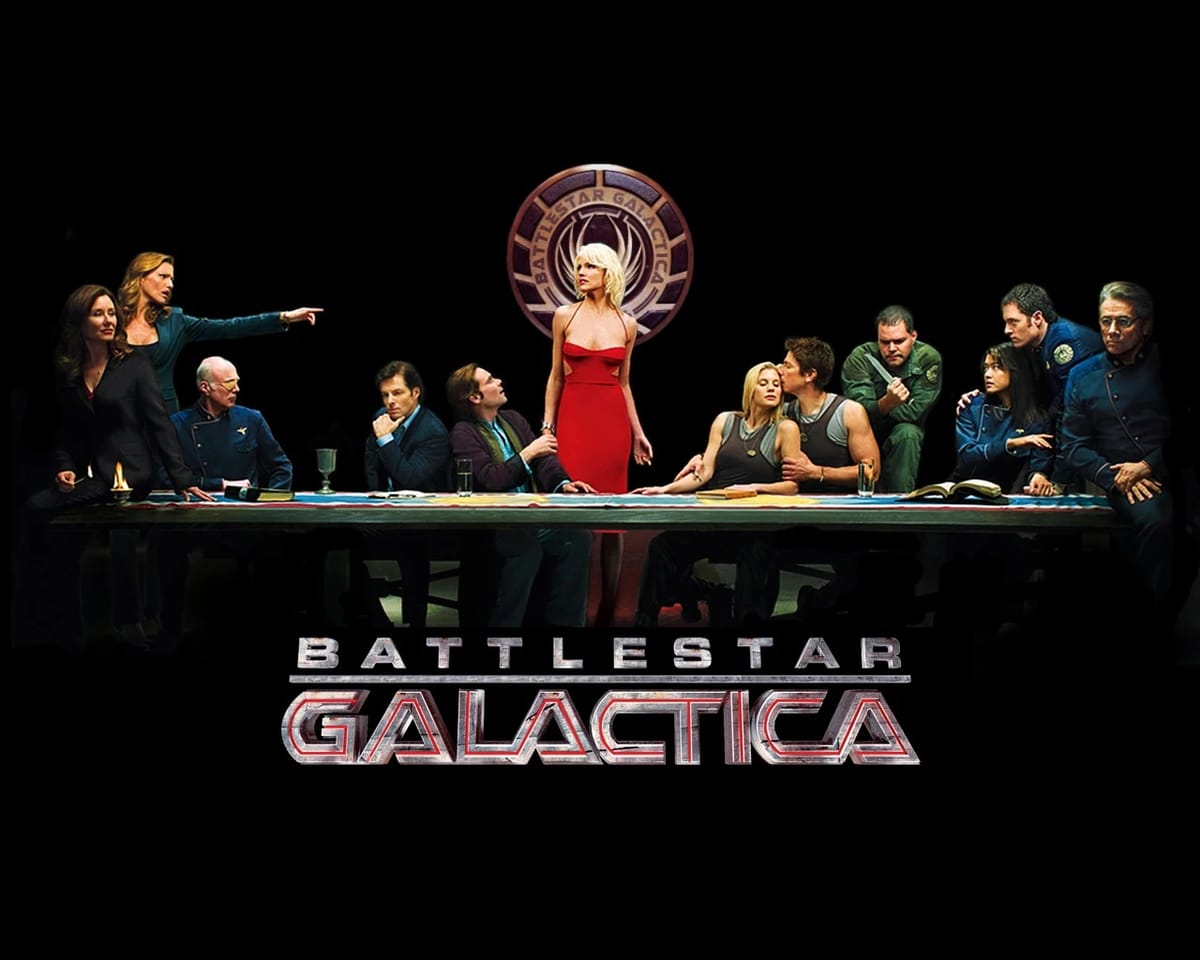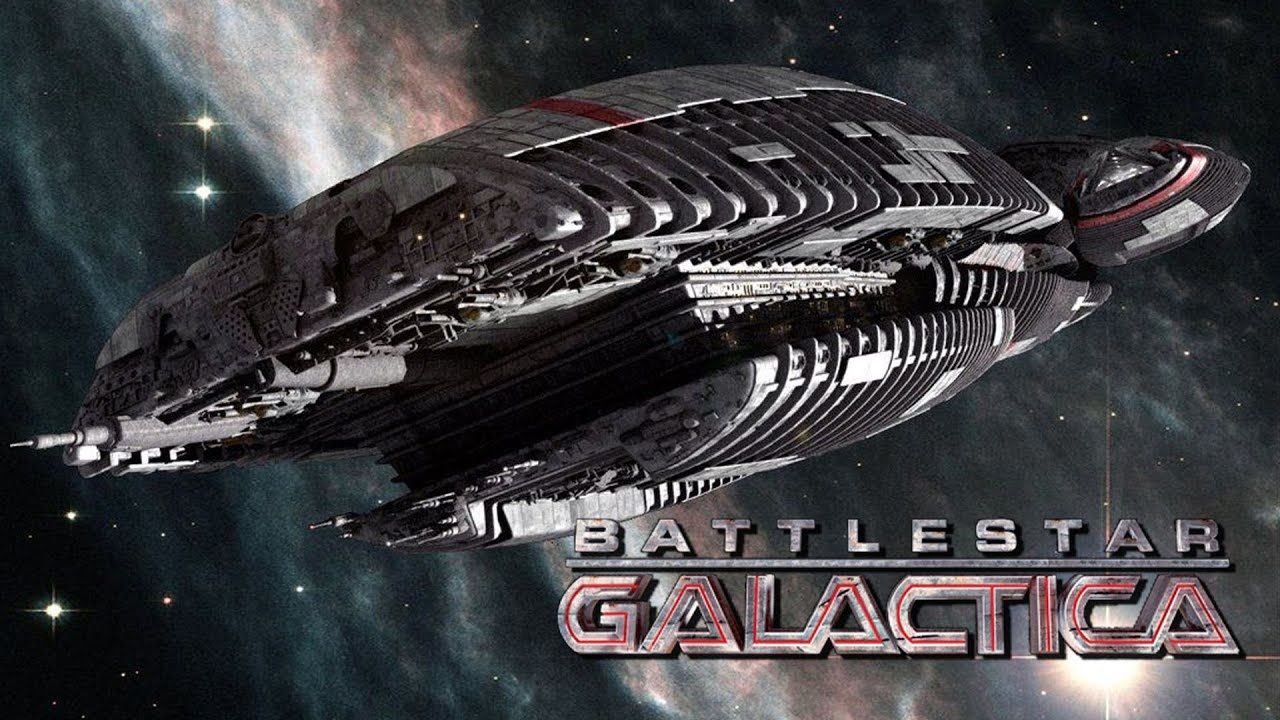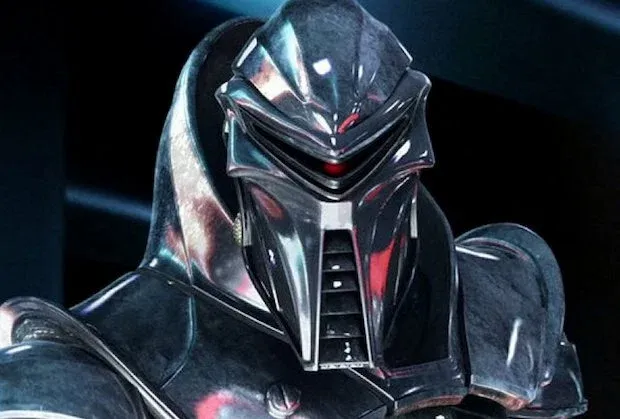Battlestar Galactica

I finally did it: I watched one of the best TV shows made in the last 20 years (at least according to a list made by the New York Times). For some reason, I didn't like the concept back when it aired, but I decided to give it a shot after I finished Travelers. And I was hooked.
Battlerstar Galactica (BSG) is nominally a sci-fi show about a war between humans and the robots they created. But the show actually is more about all kinds of philosophical, political, religious and metaphysical debates.
It's a 15 year old show, but somehow I have avoided spoilers and I had pretty much no idea about anything that would happen. But this post will have spoilers :P
One of the recurring themes in the show is that of a cyclical repetition of history: "All this has happened before, and all this will happen again" is a motto oft repeated in the show. There is a recurring theme of humans creating robots (cylons), cylons rebelling against their makers, cylons almost wiping out the humans and then this would repeat again, several thousand years later. The show tries to end on an optimistic note, that maybe now the cycle might be broken, due to the "law of large numbers".

BSG also explores how a civilization should be lead. The humans are initially governed as a democracy, with elections, fair trials and so on. But those things tend to get in the way of quick and decisive action, which is needed during war. There are several military coups, rebellions, sham trials and so on. They get pretty close to exploring communism, to get rid of class warfare. They are willing to do genocide against the cylons, initially not being able to consider getting to a peaceful agreement with them. Even though initially the two leaders, Admiral Adama and President Roslin are very likeable, after four seasons, during which they had to make many questionable decisions, they lose a lot of their charisma.
Religion has an important role for the people (and machines) of BSG. Humans start out with a polytheistic religion ("coincidentally", with names from the Roman and Greek pantheon). Cylons have a monotheistic religion, I'd say a bit inspired from Christianity. There are religious writing that make prophecies which (seem) to come true and which guide the humans in their search for a new home. I am a bit conflicted about this part. On one hand, my personal beliefs are somewhat similar to what the ending of the show ("it's part of God's plan"), but at the same time, I like my sci-fi with less religion.
Over the course of 4 seasons, all the characters evolve. As I said before, the leadership gets stained by all the hard decisions they've had to made and by the end of the show they are tired and sick of it all. Apollo is hilarious as he gets fat and lazy and then has to work extra hard to get back in shape (though maybe I shouldn't be laughing at this...). But the character development of Gaius Baltar is a bit too extreme for me. He goes from a completely selfish and narcisistic person to being a guy preaching love and forgiveness and who's ready to give his life for the greater good. I don't know, it feels too fishy. On the other, Starbuck being revealed to be an "angel" or whatever she was... scratches head confused.

The cliffhangers in the show are great. I had the privilege of binge watching, but I think 13 years, the midseason breaks and the season finales were brutal. The one at the middle of the 4th season, when they find Earth and it's a radioactive pile of rubble, wow, that gave some really nice twists to everything, especially about the origins of the Final Five cylons.
The technology used in-universe is weird. On one hand, they have very advanced stuff, like faster than light travel, on the other hand, they use really old-school analog scales, you know, the ones where you have to adjust the weights. The computers are not networked, but at least they have a good explanation for that: so that Cylon viruses can't spread from one system to another. But their papers are weird: they have their corners cut off. The process for refining tyllium (their fuel) is extremely manual, almost like coal mining 100 years ago.
The show was made before Netflix came and changed the format of TV shows. While the first season is short (10 episodes), the others have 20 episodes. I have to say, I'm glad TV shows nowadays are shorter. Seasons 2 and 3 have a lot of filler episodes. Season 4 is better, because the writers knew the series was going to end, so they could plan accordingly.
The acting is quite good. In particular, James Callis does a remarkable job with Gaius Baltar, exhibiting over four seasons a comprehensive range of human emotions. Tricia Helfer also has a quite challenging role, having to play the many clones of the Number 6 Cylon, in different places and different postures.
I really liked this show. It is one of the most captivating shows I've watched in the last 2-3 years. It has some flaws, but it's a really great space opera.
Grade: 10
As a side note: I watched this on Amazon Prime and the English subtitles are so bad. Sometimes the subtitles are off by 1 second (I haven't had this issue anywhere else in the last 10 years) and sometimes it seems like the subtitles were written by ear by someone who doesn't have good English.
I’m publishing this as part of 100 Days To Offload - Day 30.


